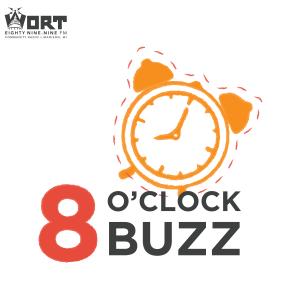8 O'Clock Buzz

Monday 8 O’Clock Buzz with how a GOP member fights conspiracy th...
Producer Notes for The Eight O’ Clock Buzz on Monday, September 29th, 2025.
Timestamp in Soundcloud for our 3 guests:
- Alex Shur around minute 9
- Rebecca Hoyt around minute 36
- Corey Whitmore around minute 45.
Our first guest, journalist Alex Shur, who comes onto the show usually once a month to chat about election and legislative news, talked about his profile of Wisconsin Assembly GOP leader, Rep. Scott Krug. Known for his legislation around water, Rep. Krug in recent years has turned towards changing the conversation around elections. The conversation from many GOP corners of the political spectrum is a lot of questioning and mistrust — chiefly, the skepticism around the 2020 election.
Taking over for Janel Brandtjen, who platformed conspiracy theorists and denied the results of the 2020 election, Krug has tried to change the narrative since joining the leadership of the assembly election committee in 2022. In summary he listens to all sides and supports bills that at least have a hope of bipartisan support.
What struck me most about Shur’s piece was Rep. Krug’s quote that to me gets to the heart of politics these days:
Messaging,” he said, “has become more important than actual policy.
Messaging — and spreading that message — seems to matter more than the action behind that message. It’s more about how and where you say something rather than what you say.
One last part of our conversation on the Monday Buzz that felt important is a fact that could sound like political nerdom but is electric with importance: the Wisconsin Senate does not have an election’s committee. When asked if that is normal, Shur said there is usually an election’s committee. In fact, 2025 marks the first time since 2009 that there hasn’t been an Senate election committee to handle election legislation. We’ll see how that plays out and whether that will change.
Keep an eye on how election policy gets shaped and what role Rep. Krug might play. WPR has further coverage related to the subject of election policy — it’s unknown what bills will actually get passed and whether the message will resonate with both sides of the aisle.
Disability access in MadisonOur second guest was Rebecca Hoyt, the Disability Rights and Services Specialist from the Department of Civil Rights at the City of Madison. In the landmark ADA law,
In a year-long effort, Madison recently updated their ADA Transition Plan this year (also see the City Website), which is designed to make a law a reality (e.g. installing elevators, parking spots, curb cuts). To Madison’s credit, Hoyt mentioned that the city is likely doing a better job than many others in checking its ADA compliance.
For Hoyt, here are Madison’s roses and thorns when it comes to being accessible for people with disabilities:
- Roses (going well): Compliance issues in buildings were minor. People can get into public buildings. There are some strong programs for access.
- Thorns (places to update): Inconsistent signage inside of buildings. Some of the parking could be made more accessible. There’s a need for interpreters and language access. Primarily, this is true fore people who don’t use English and use American Sign Language.
Hoyt also mentioned that the CDC has identified 1 in 4 people have a disability — and that number is likely much higher.
Disability Impacts Infographic
The challenge of being a musical artist in 2025Our last guest was from a pre-recorded interview is the founder of Media 22 Corey Whitmore. Whitmore, a long-time performer, helps musicians build their careers. This includes recording albums and making songs, but also developing social media strategies. In Whitmore’s long career, he has identified three pillars for how an artist can make money:
- Selling albums and songs (analog and digitally)
- Going on tours and shows
- Selling merchandise
If you’re Taylor Swift, the Flaming Lips, or Bad Bunny, this might all work fine, but for independent artists — or people who decide to light the fires and start a musical career — it’s a struggle to generate a livable income.
Plus, as we touched on in our conversation, artists need to run a whole marketing campaign in hopes of gaining an audience. You need shorts, long-form videos, and a strategic release of singles over a full album drop; you need strong Instagram Reels and TikTok posts. To get noticed — and to hope to make money — you need this to build awareness. It can often feel more like a hope economy: you post and hope the algorithm loves you and puts you in front of people on their phones and devices.
It’s never been easier to make something and share it, but it’s never been harder to form a sustainable career.
Thanks for reading and listening, Tucker Legerski
Did you enjoy this story? Your funding makes great, local journalism like this possible. Donate hereThe post Monday 8 O’Clock Buzz with how a GOP member fights conspiracy th... appeared first on WORT-FM 89.9.






 Visit Podcast Website
Visit Podcast Website RSS Podcast Feed
RSS Podcast Feed Subscribe
Subscribe
 Add to MyCast
Add to MyCast